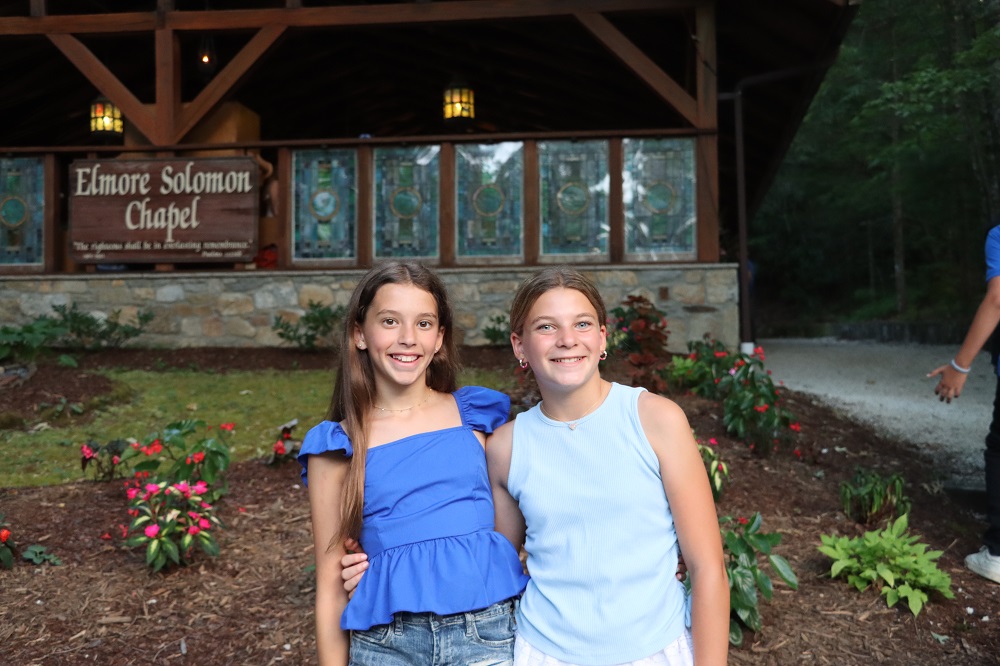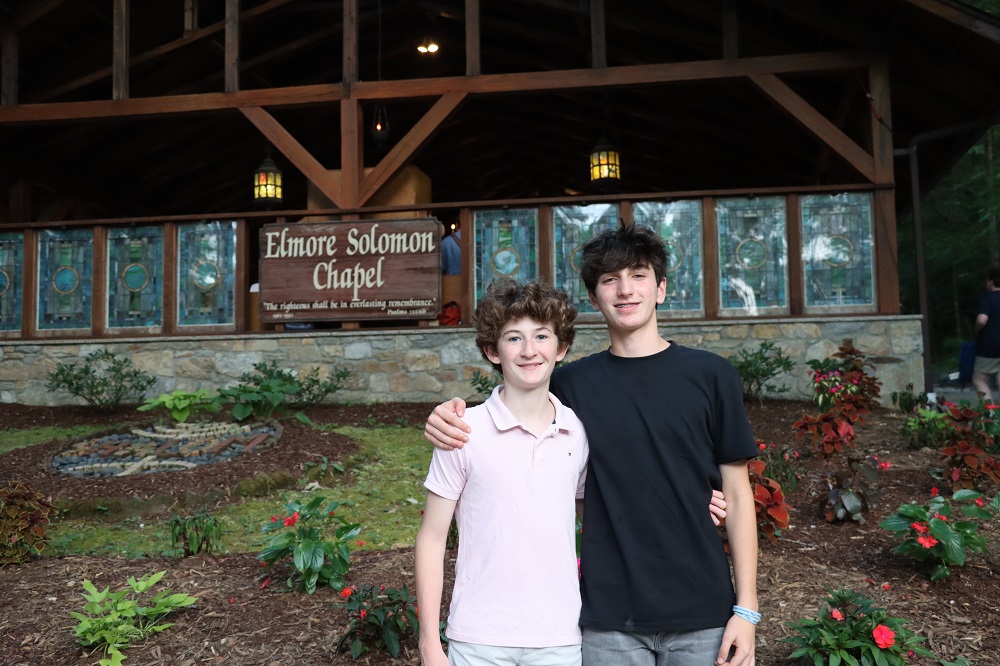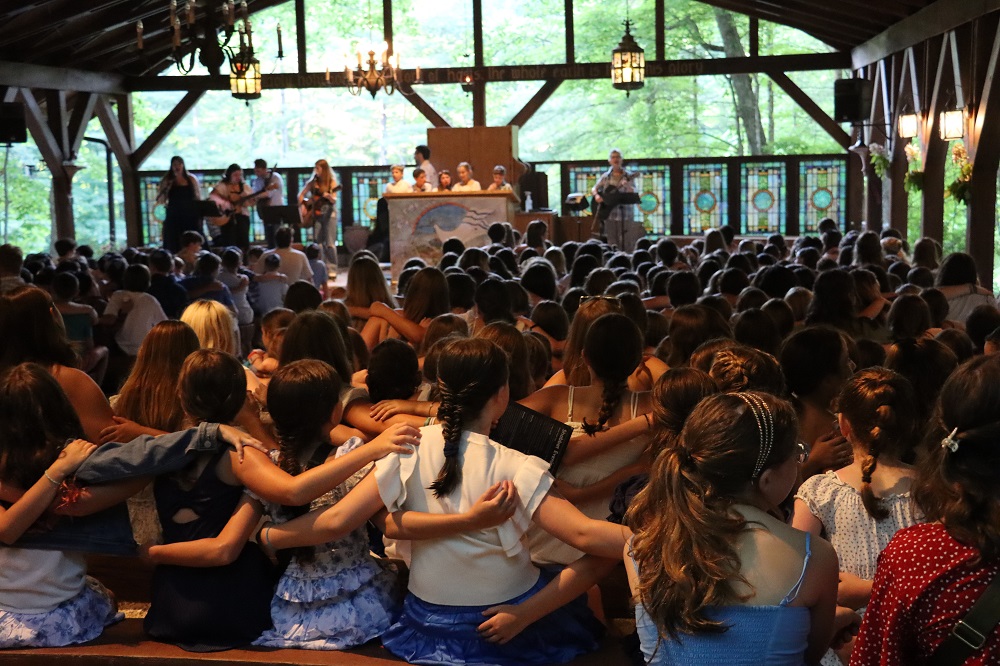Shabbat Original Thoughts Shared By Fish and Dana on the 2nd Shabbat of 1st Session 2024
Shabbat Shalom! I cannot believe we have already reached the midpoint of this first session. This is my favorite week – it is the week we get to fully live in our camp experiences. I know Seth’s “thing” is that he often reads you a book – not quite my style. But I do love books – so I’m going to tell you about one. This past spring, my son Reid (Juniors) and I read and listened to The Wild Robot series. In the first book, Roz – the wild robot – packed in her crate and shipped with other robots, crashes into a desert island. A family of playful otters accidentally switch Roz on, and from there, the story unfolds. Oddly enough, this book about a robot crash-landing on an island and befriending wild animals teaches us what is it means to be human. What matters is the way we connect with each other and the world.
- To be human is to be kind. One of the feature’s of Roz’s programming is that she can’t use physical violence. At moments, this makes it hard for her as act aggressively toward her. She learns to use her kindness, her empathy and her intellect to navigate the world, rather than her physical strength. Even, in the third book, when a new update allows her to be physically violent, she resists the “easy out” of being aggressive and leans into choosing kindness. At camp, it is so easy to respond with anger – to get mad and lose control of our emotions. Remember, as you face challenges, you have the power to be kind. It doesn’t happen by accident. You (and the people you surround yourself with) control your programming. Be kind and surround yourself with others who are kind.
- To be human is to build an intentional community. In the book, Roz adopts an orphaned gosling and raises him as her own child. Together, as a family, they connect with the beavers and otters; predators and prey have moments of truce so they can work together towards common goals (saving Roz from the robots trying to get her back to the factory, for one). Here at camp, we get the chance to build our own intentional “families.” We have our cabins, our units, our camps, the friends we go to options with, and many more little communities within our big camp. I have always found deep and meaningful connections with this community – my chosen family.
- To be human is to be a steward of the natural environment. In the third book, Roz and her island friends face an environmental disaster, and it is up to her to save her son Brightbill and her grand-goslings. Spoiler alert – Roz does save the day. While we may not, single handedly, be able to solve an environmental crisis, we each play a small part in preserving the world around us. One of the biggest improvements we made here at camp this past off-season was that we installed solar panels on the roof of the HeRo – this means we can power many of the Pioneer Boy cabins, the HeRo, and the electric pool heater with sustainable energy. You too can make a big difference – you can turn off the lights when you leave the cabin, you can turn of the water when you brush your teeth, you can take shorter showers (as long as you get clean!), you can compost (boom), you can “leave no trace” and pick up after yourself, leaving the natural world natural and beautiful. You can practice these things at camp, bring them home and make a difference in your world when you get back home.
So, on this middle shabbat of second session – I encourage you to be like Roz – be kind to each other, build an intentional community, and be kind to our planet.


